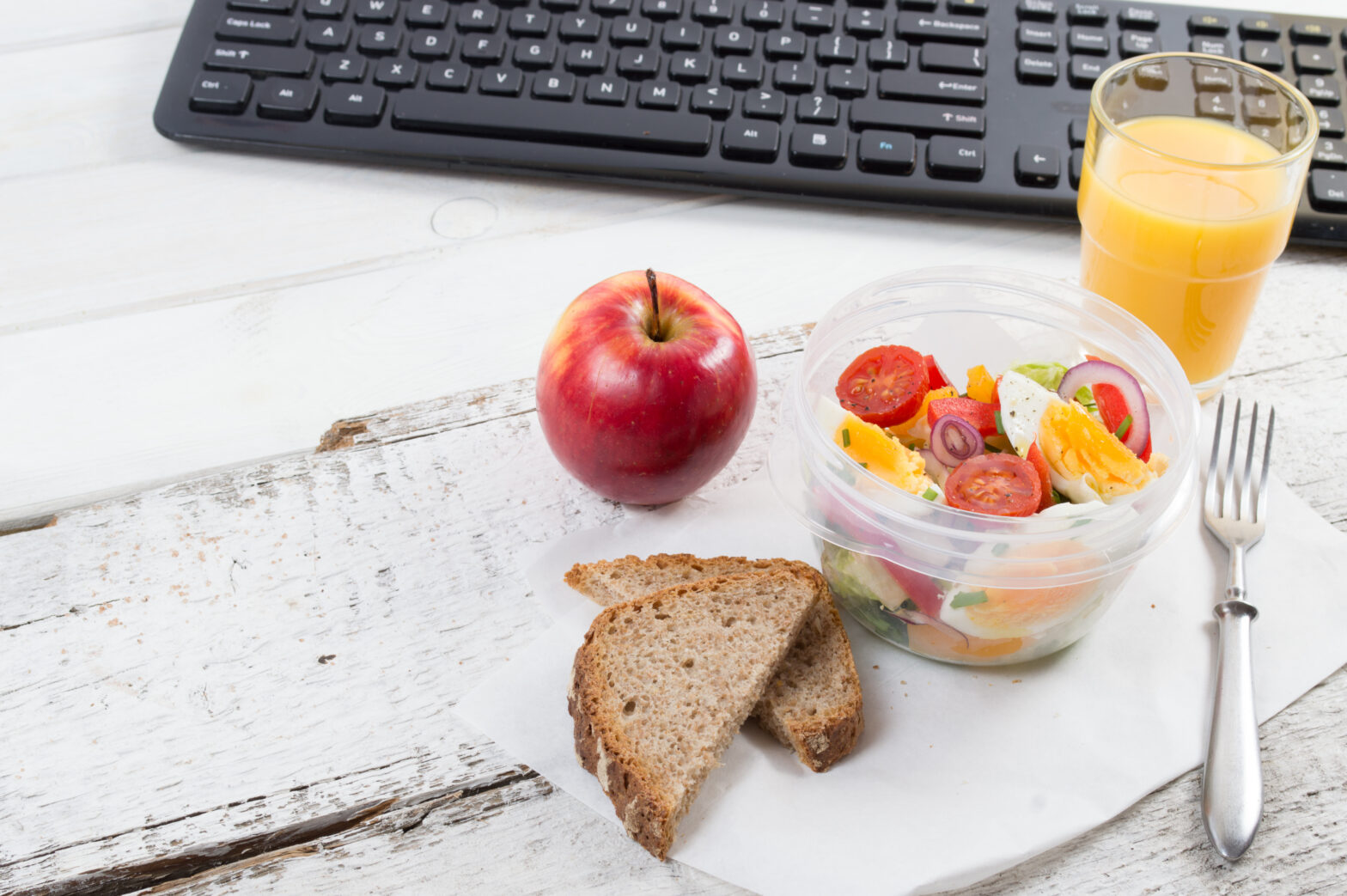Begin with breakfast – miss breakfast and you’re missing the opportunity to boost your intake several important vitamin and minerals, also if you skip breakfast you’re more likely to find your hand in the biscuit tin mid-morning. In the morning your body and more importantly your brain needs fuel to allow to work effectively. If don’t have time or you really can’t face eating anything first thing in the morning take something into to work with you.
Stay hydrated – not drinking enough is one of the most common causes of headaches, poor concentration and tiredness and stuffy over heated offices can make the problem worse. Long term dehydration can lead to problems such as constipation and urinary tract infections. If, like many people, you forget to drink during the day download an app like waterlogged on your phone to remind you to drink regularly.
Take regular breaks – to avoid mental fatigue, neck and shoulder problems and eye strain get up from your desk or at least take your eyes off your computer screen for few minutes every hour, you will be surprised at how making time for a short break can make you feel more energised and boost your productivity.
Make time for lunch – when you’re busy it’s easy to think you can save time by skipping meals but the truth is you’re probably doing more harm than good. Taking some time out for quick healthy lunch like a bowl of soup will help you stay energised and alert throughout the afternoon and reduce the urge to snack.
Take a packed lunch from home – by taking your lunch from home you can make sure it’s healthy and balanced, save money and save time
Keep a bottle of water and some fruit on your desk – if you keep these things where you can see them you’re more likely to eat them.
Be snack smart – eating little and often is a good way to keep blood sugar level stable which helps to prevent energy levels from dipping but choose your snacks carefully. A healthy snack should provide between 100-150 calories and should make a positive contribution to your diet – so choose snacks that are rich in vitamins, minerals or fibre. Good examples include a handful of nuts, fresh or dried fruit, a couple of oatcakes or a pot of yogurt.
Make good use of your lunch break – if possible move away from your desk and get a change of scenery in your lunch break. If you’ve planned ahead and taken a healthy lunch to work with you don’t have to waste time (and money) queueing at the sandwich shop – so why not use the time you save to get some fresh air and maybe go for a walk. Try to persuade a colleague to join you.
Fiona Hunter is a nutritionist.






